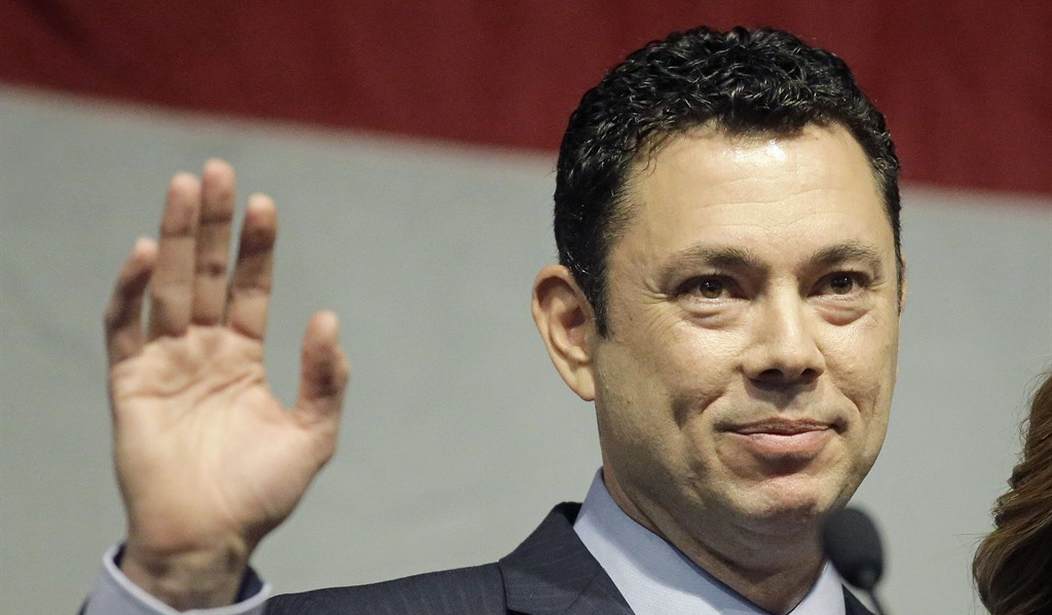Are members of Congress underpaid? Jason Chaffetz has resigned from office effective this week, and in an outgoing interview with The Hill he suggests that financial considerations played a significant role in that decision. Chaffetz calls the salary for House members “handsome,” but the costs of living in two different places at the same time make the job impossible for all but the wealthy:
“I really do believe Congress would be much better served if there was a housing allowance for members of Congress,” Chaffetz told The Hill in an interview in his Capitol office, where he sleeps whenever he’s in Washington. “In today’s climate, nobody’s going to suggest or vote for a pay raise. But you shouldn’t have to be among the wealthiest of Americans to serve properly in Congress.” …
“Washington, D.C., is one of the most expensive places in the world, and I flat-out cannot afford a mortgage in Utah, kids in college and a second place here in Washington, D.C.,” Chaffetz said. “I think a $2,500 housing allowance would be appropriate and a real help to have at least a decent quality of life in Washington if you’re going to expect people to spend hundreds of nights a year here. …
“There are dozens upon dozens of members living in their offices, and I don’t know how healthy that is long term.”
While Chaffetz said $174,000 a year is a “handsome” congressional salary, he explained that subsidizing lawmakers’ housing costs in the pricey D.C. metro area could actually save taxpayer dollars. If he had a proper home in Washington rather than a cot in his office, Chaffetz said, he wouldn’t need to fly home every week on the taxpayers’ dime, and his wife, Julie, could visit more often.
Until relatively recently, the problem didn’t exist — because most members of Congress moved to Washington, and only kept an address in their district or state for voting. That became a major political liability a few decades ago, and in fact continues to exert a powerful influence on voters. Evan Bayh got creamed in his Senate comeback attempt last year in part because he had moved to Washington, making it easy for now-Senator Todd Young to paint Bayh as an out-of-touch establishment lobbyist, a charge that stuck:
“The only time he ever shows up in Indiana is when he wants something from us,” Trevor Foughty, campaign manager for Bayh’s opponent Rep. Todd Young, told CNN. “And he’s so unbelievably arrogant, he actually thinks Hoosiers don’t notice.”
A move to the Beltway has become a dangerous option politically, especially for House members, who have to stand for election every two years. That forces incumbents to either maintain two residences, or to sleep in the office, and as Chaffetz notes the latter has become more the norm than the exception. While it might be relatively easy to maintain one DC residence on the House salary, it would be almost impossible to maintain two without independent wealth to make up the difference. Hence, Chaffetz makes a good point about the eventual skewing of candidates towards the upper crust, except for those in closer proximity to the Beltway.
However, does it make sense for taxpayers to cough up a housing allowance on top of the salary in order to prevent that? That would come to a little over $16 million annually (for all 535 members of Congress), which isn’t exactly chump change, but it’s not a major additional expense to the federal budget either. If that meant a significant reduction or end to taxpayer-financed flights home to the home district and states, the net outlay might drop even further.
The problem — especially in these populist times — is that it will be seen to encourage Congressional careerists to an even greater extent than we see now. Which is better: guarding against a trend toward independently wealthy candidates to have a more representative Congress, or an economic incentive that pushes incumbents of more modest means out after a few terms to get a less-entrenched governing class? The answer to that depends largely on whether the latter turn out to be incumbents we’d like to keep around. In the end it will be a largely academic question anyway, as Congress would have to vote to establish a housing allowance for itself — and in these populist times, that will put a big target on their backs, unless it’s paired up with a pay cut. Chaffetz may or may not be offering good advice, but don’t expect anyone to take it.








Join the conversation as a VIP Member